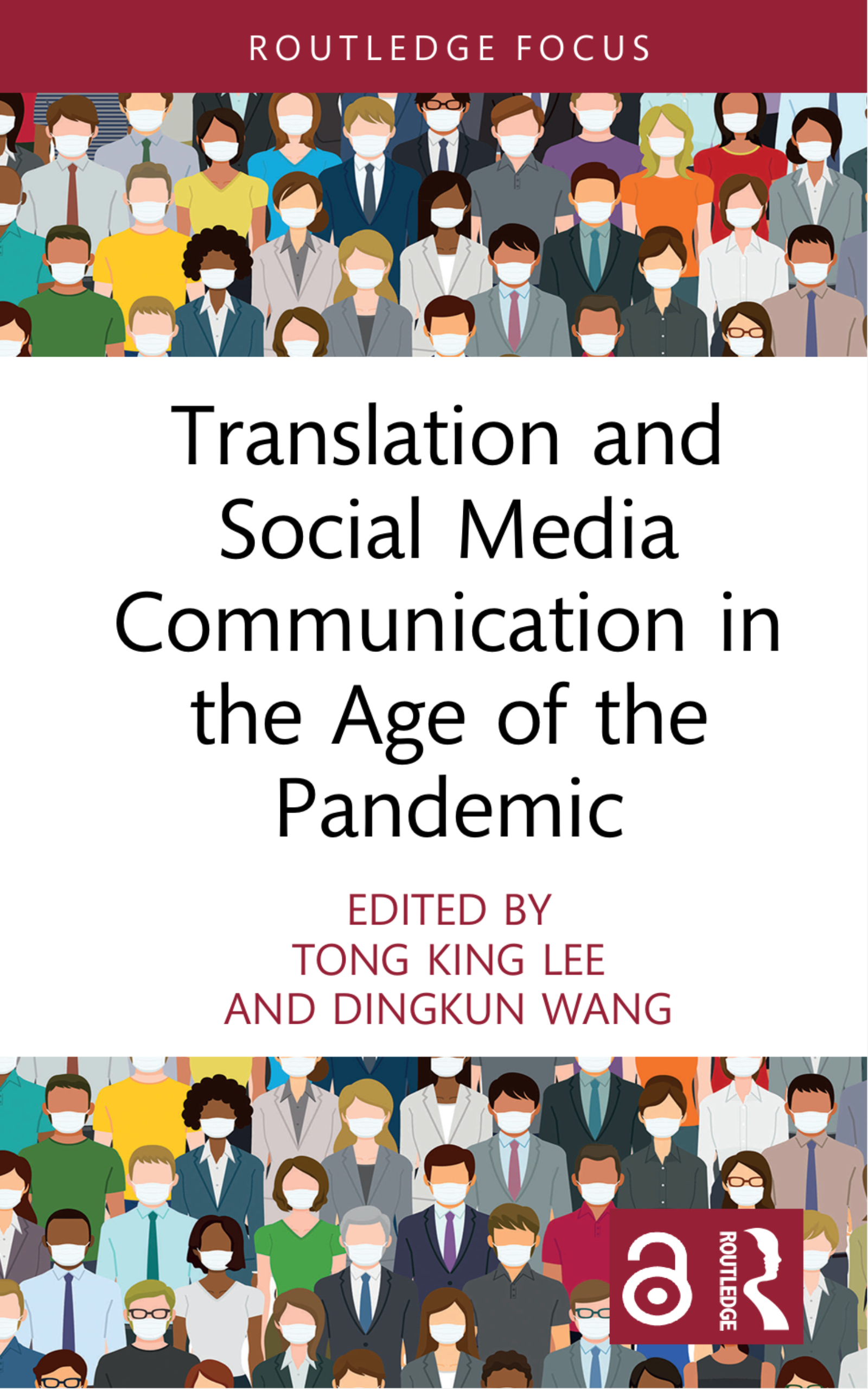“Trust and Cooperation through Social Media: COVID-19 Translations for Chinese Communities in Melbourne” is a scholarly book chapter by translation scholar Anthony Pym and Chinese studies scholar Bei Hu that studies the role of trust in public health communication with non-English speaking communities during the COVID-19 pandemic. They construe public health behavioral-change communication as “performative simulacra,” borrowing from theorist Jean Baudrillard’s concept of the simulacra, or representations of the real. In public health communication, statistics like death toll represent the (real) severity and spread of a virus, which combined with a variety of strategies and media, translation, and retelling, can induce behavioral change in many people to adopt preventative measures for COVID-19 to stop its spread. Trust in the speaker and medium is necessary for behavior change to succeed as public health communication often involves unfamiliar and highly complex scientific knowledge, which listeners or receivers must trust is true.
The authors reviewed four studies that investigated the consumption of COVID-19 information in monolingual English speakers, multi-cultural communities, and different age groups in Melbourne. A study on media trust in monolingual Australians found that Australians generally preferred to obtain COVID-19 information from traditional news sources, and they had strong trust in “experts” and health organizations. A report by the Victorian Ombudsman on the measures used to inform a Cultural and Linguistically Diverse (CALD) community speaking seven languages of a one-week lockdown revealed a different pattern of media trust in this community. Official channels including formal letters and government websites proved to be ineffective, and the authors identified the lack of timeliness, low accessibility, and poor quality of translations as key weaknesses of translated public health announcements. The non-English speaking population relied on word of mouth from English-speaking family members or neighbors for updated information. Public health information from official sources in English alienated non-English speakers in CALD communities, while “linguistic and cultural mediation, however, seems to have been more able to create trust by bridging the gap between ‘them’ and ‘us’” (Pym and Hu 52).
Community organizations also helped translate and explain COVID-19 information to Chinese-speaking elderly, as most elderly Mandarin speakers were thought to have low English proficiency. WeChat, a Chinese-backed social media platform, was a popular channel for supplying translated news on COVID-19 and provided a platform for Chinese-speaking Australian residents to express their inter-cultural identity. The platform compensated for the lack of up-to-date local news written in Chinese, translated information directly from the government and health organizations, and created “a third cultural space” (Pym and Hu 56) for Chinese speakers living overseas to express their discontent with the West.
Trust is an integral component of public health communication, enforcement of lockdowns, and community compliance, but CALD communities require different strategies than communities speaking the predominant language for trust to be established. The chapter explored factors that affect trust when translating public health communication for multi-cultural audiences, particularly accessibility, timeliness, and accuracy, while considering the media consumption habits of different age groups. It presents the use of social media as a strategy for outreach and to provide translations of public health information to a wider audience during lockdown. The authors also emphasize community involvement to bridge the language gap between official sources and non-English speakers, such as through the help of grassroots community organizations and guidelines for community members to create their own translations.

Image Captions:
Cover image of Translation and Social Media Communication in the Age of the Pandemic, 1st ed., edited by Tong King Lee and Dingkun Wang, Routledge, 2022.Citation: Pym, Anthony, and Bei Hu. “Trust and Cooperation through Social Media: COVID-19 Translations for Chinese Communities in Melbourne.” Translation and Social Media Communication in the Age of the Pandemic, 1st ed., edited by Tong King Lee and Dingkun Wang, Routledge, 2022, pp. 44–61, https://doi.org/10.4324/9781003183907-4. NON-FICTION, BOOK CHAPTER | AUSTRALIA. ll
Source Type: Scholarship on COVID-19 Studies
Country: Australia
Date: 22-Feb-2022
Keywords: Chinese-speaking Communities, Culturally and Linguistically Diverse Communities, Media Consumption, Melbourne, Public Health Communication, Translation, and Trust